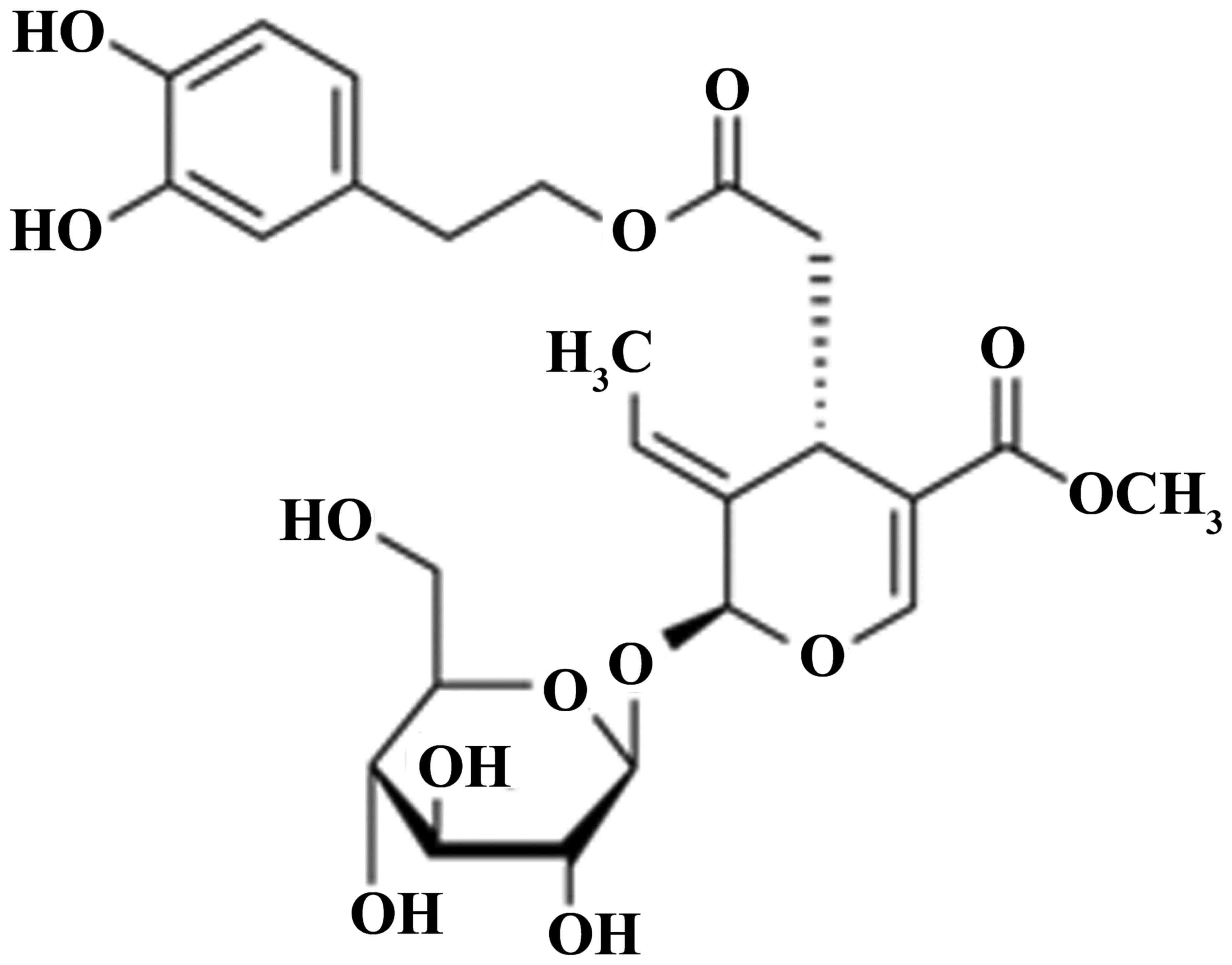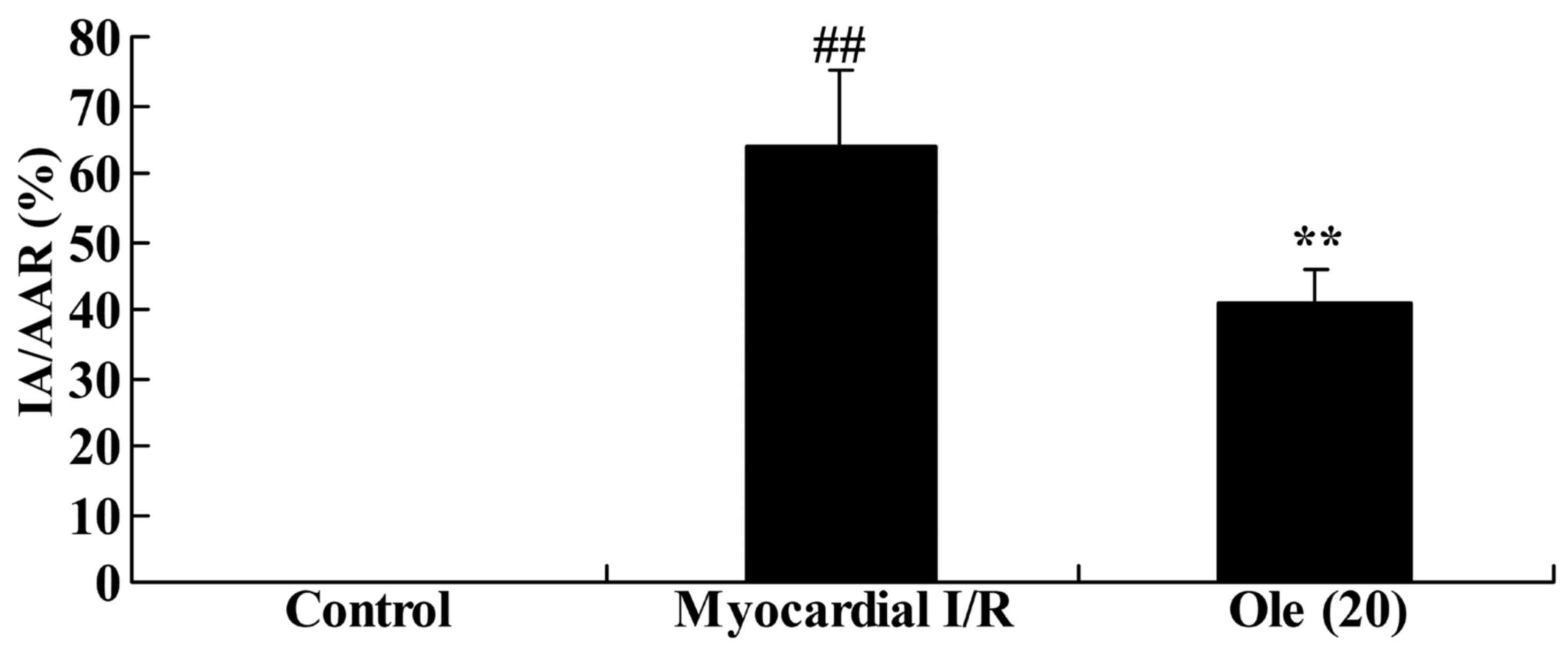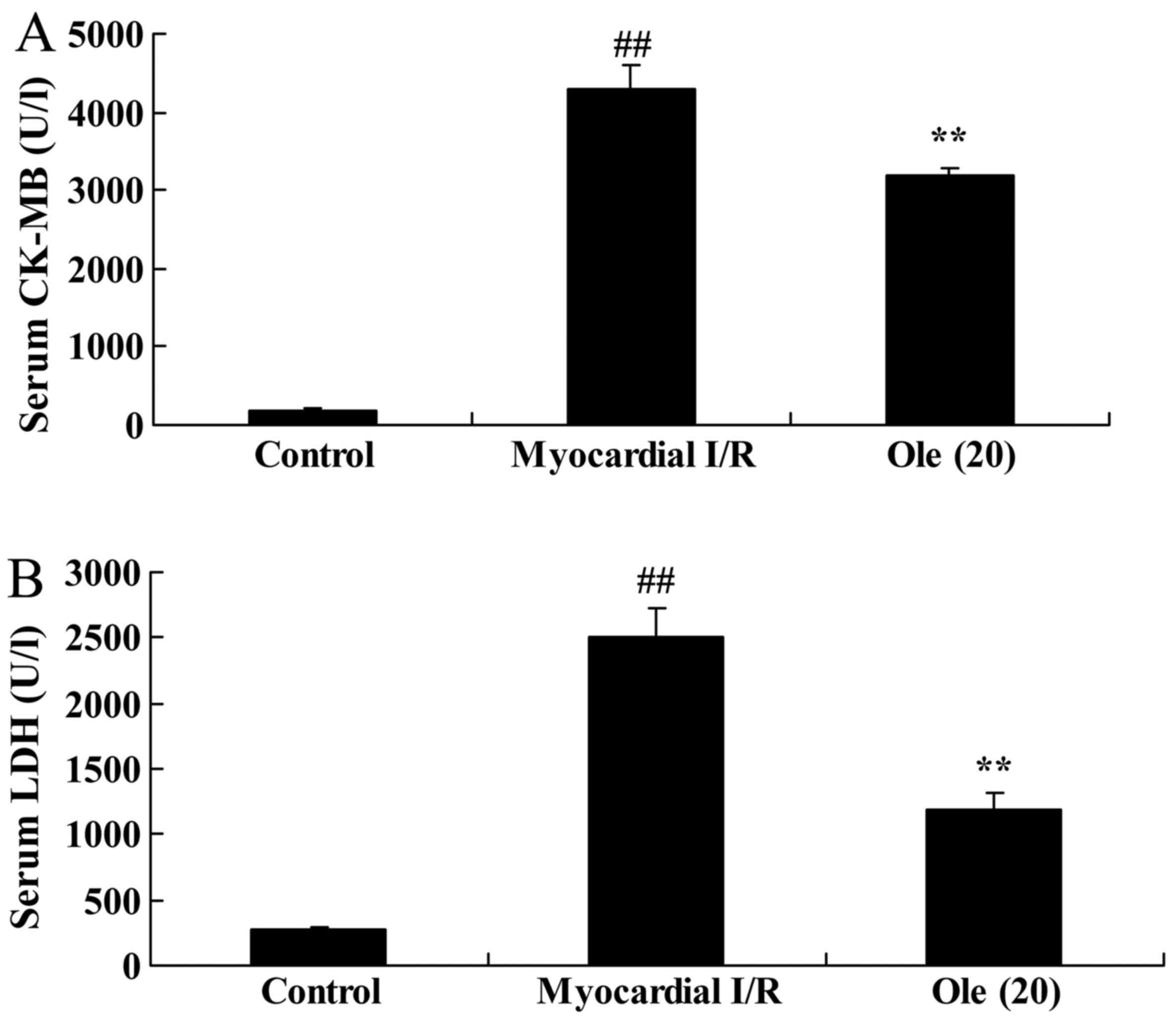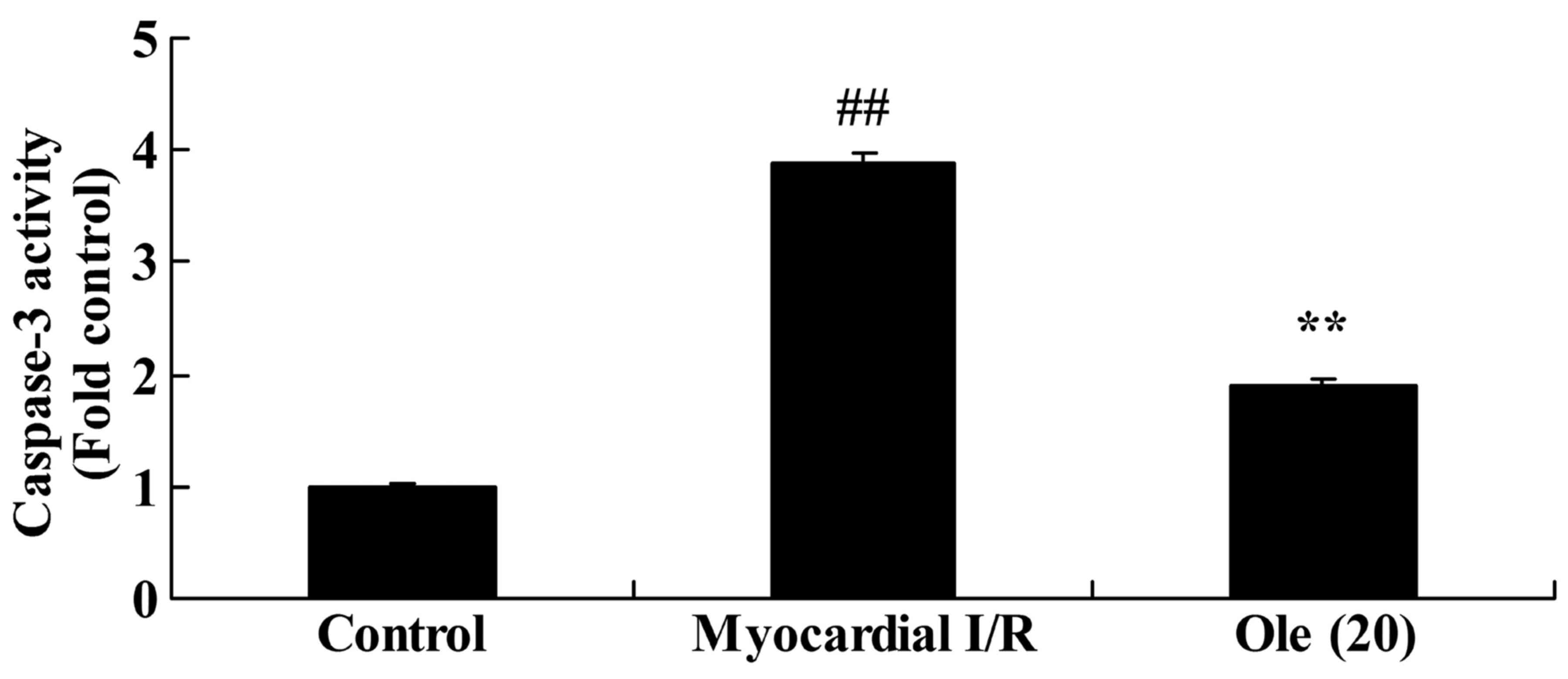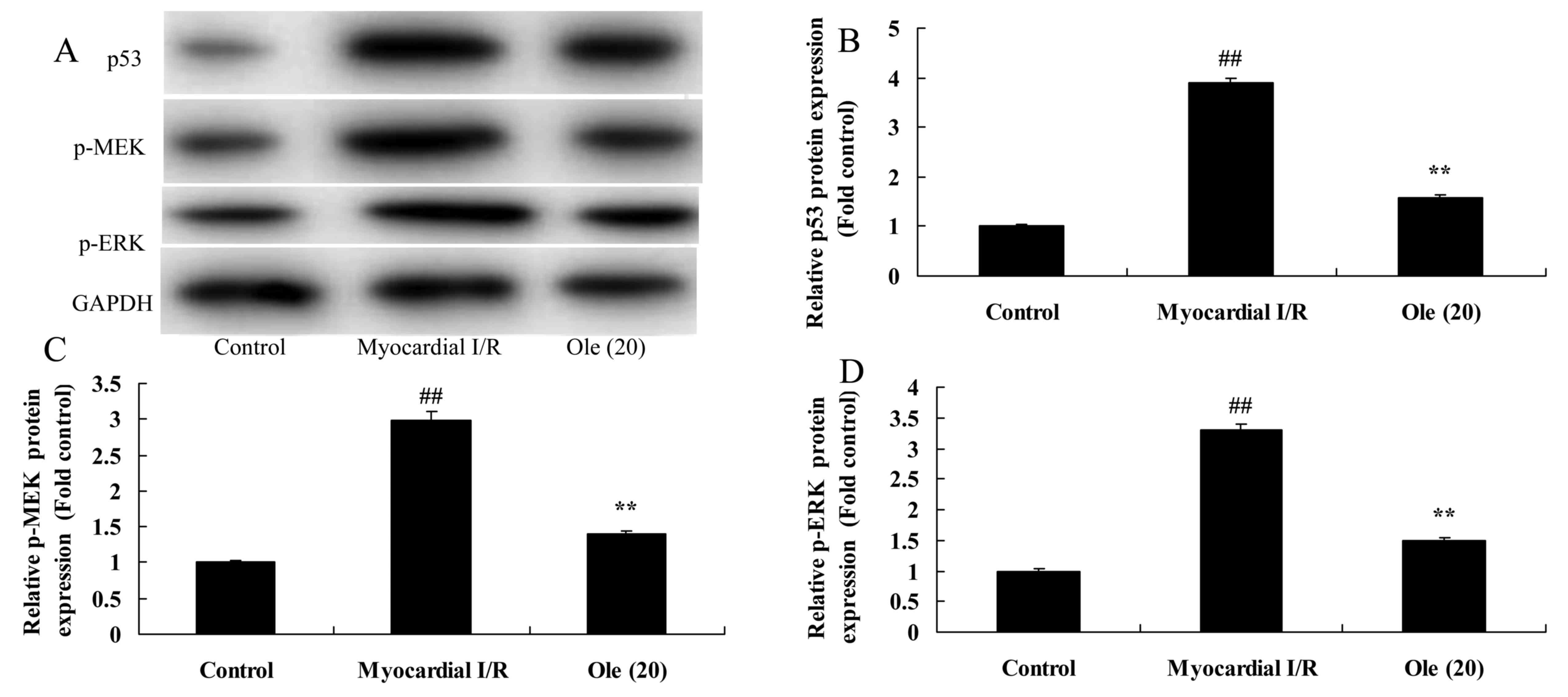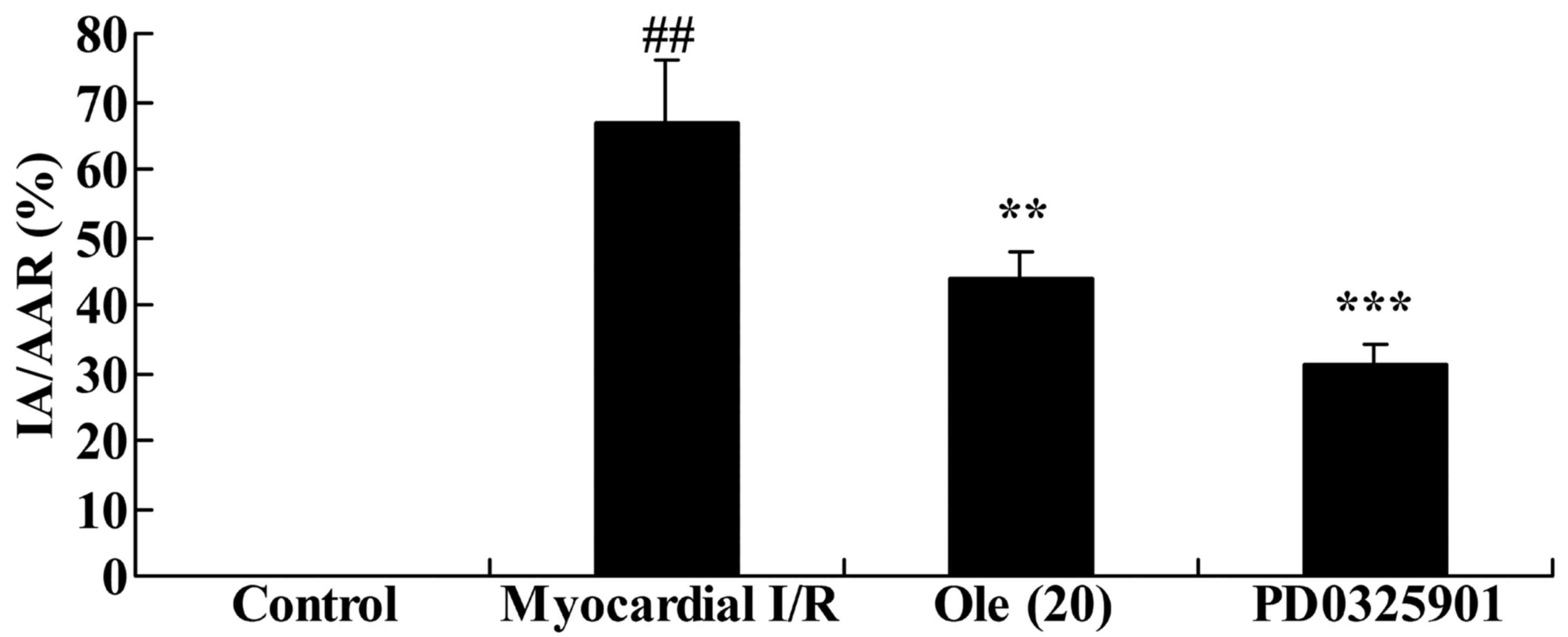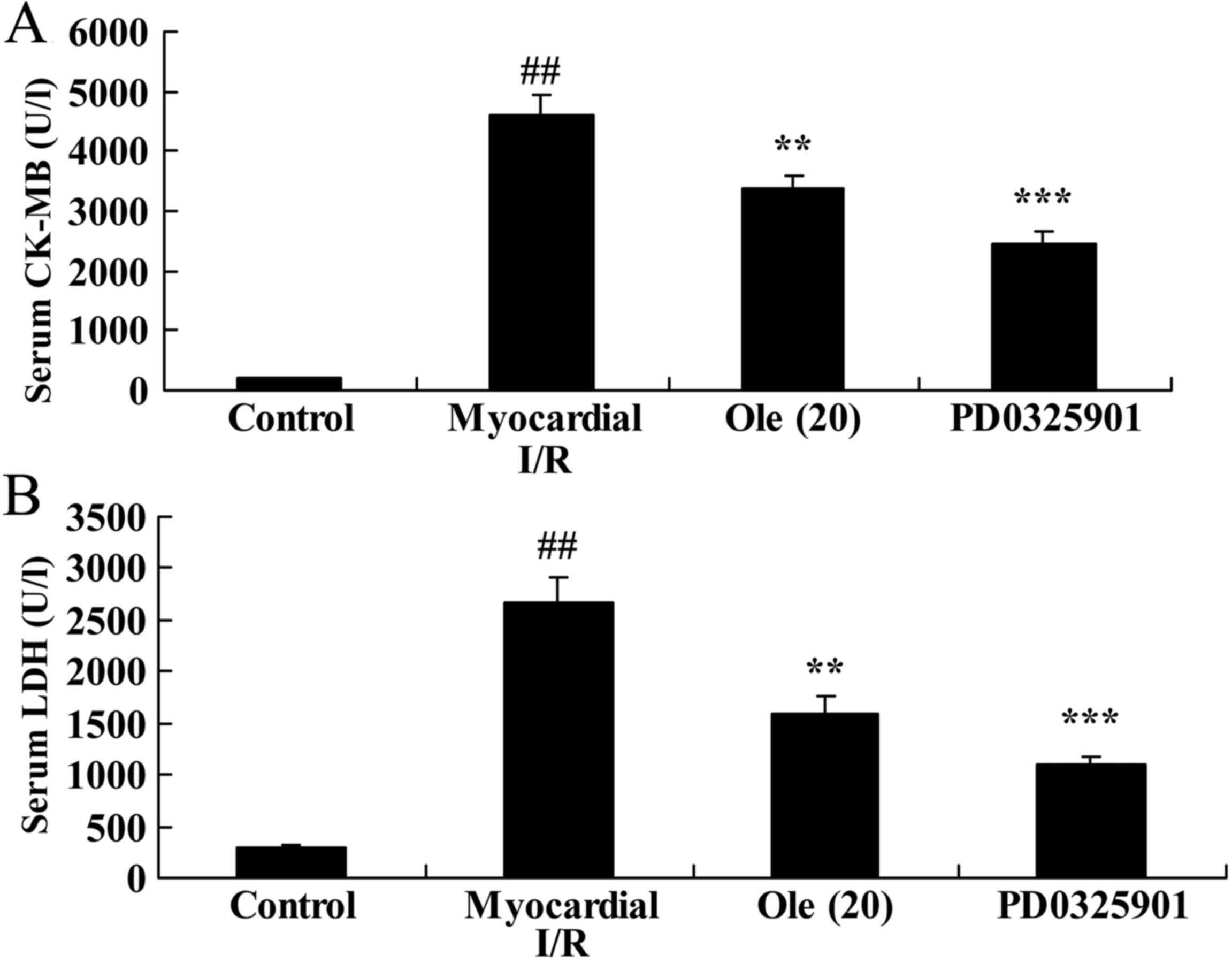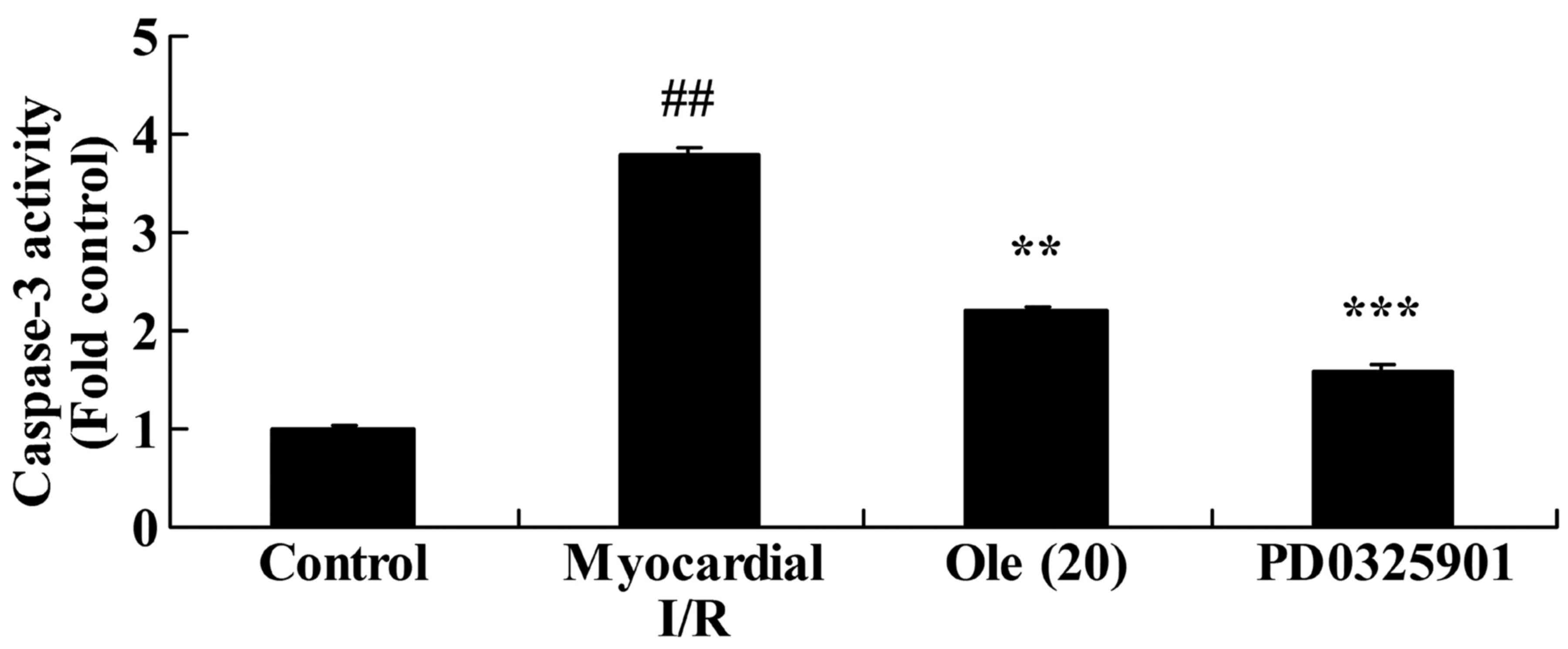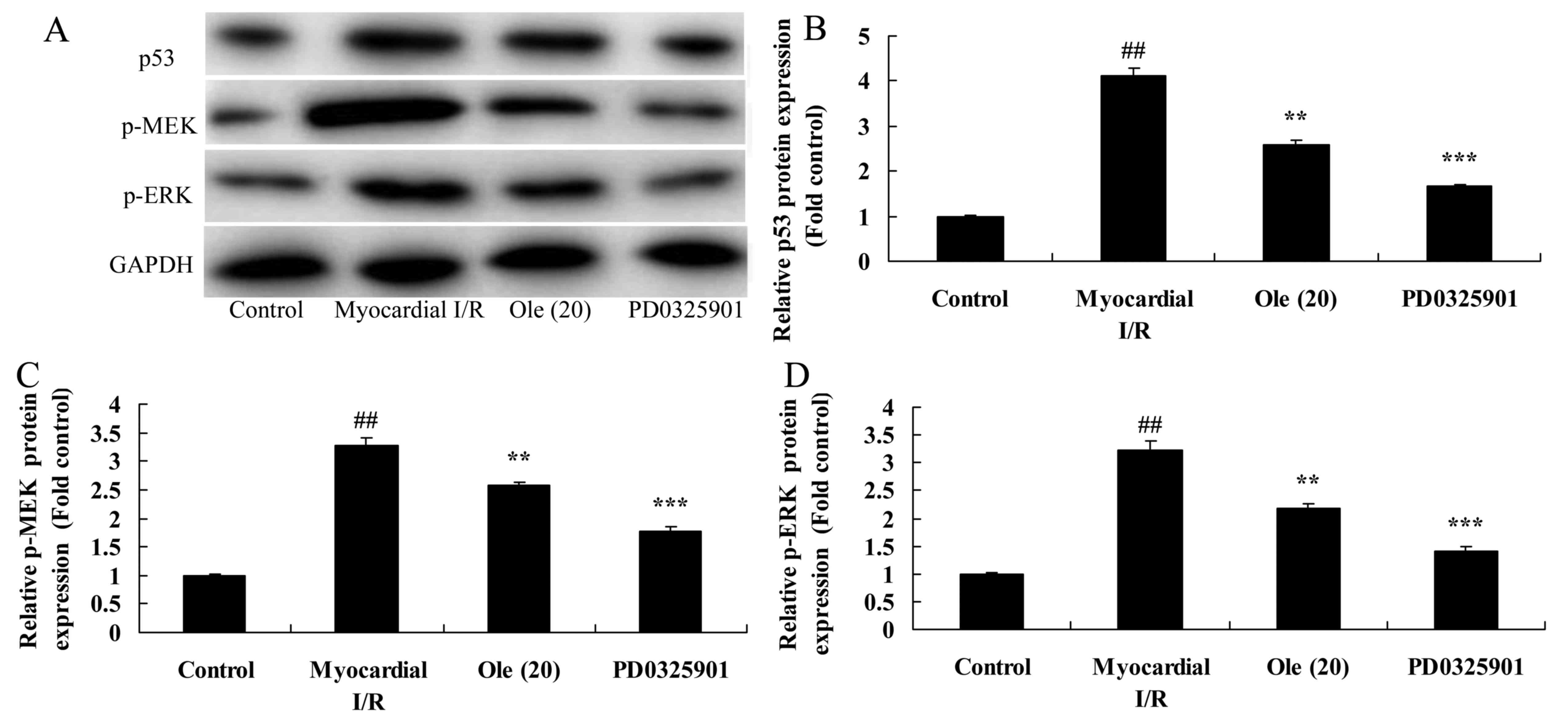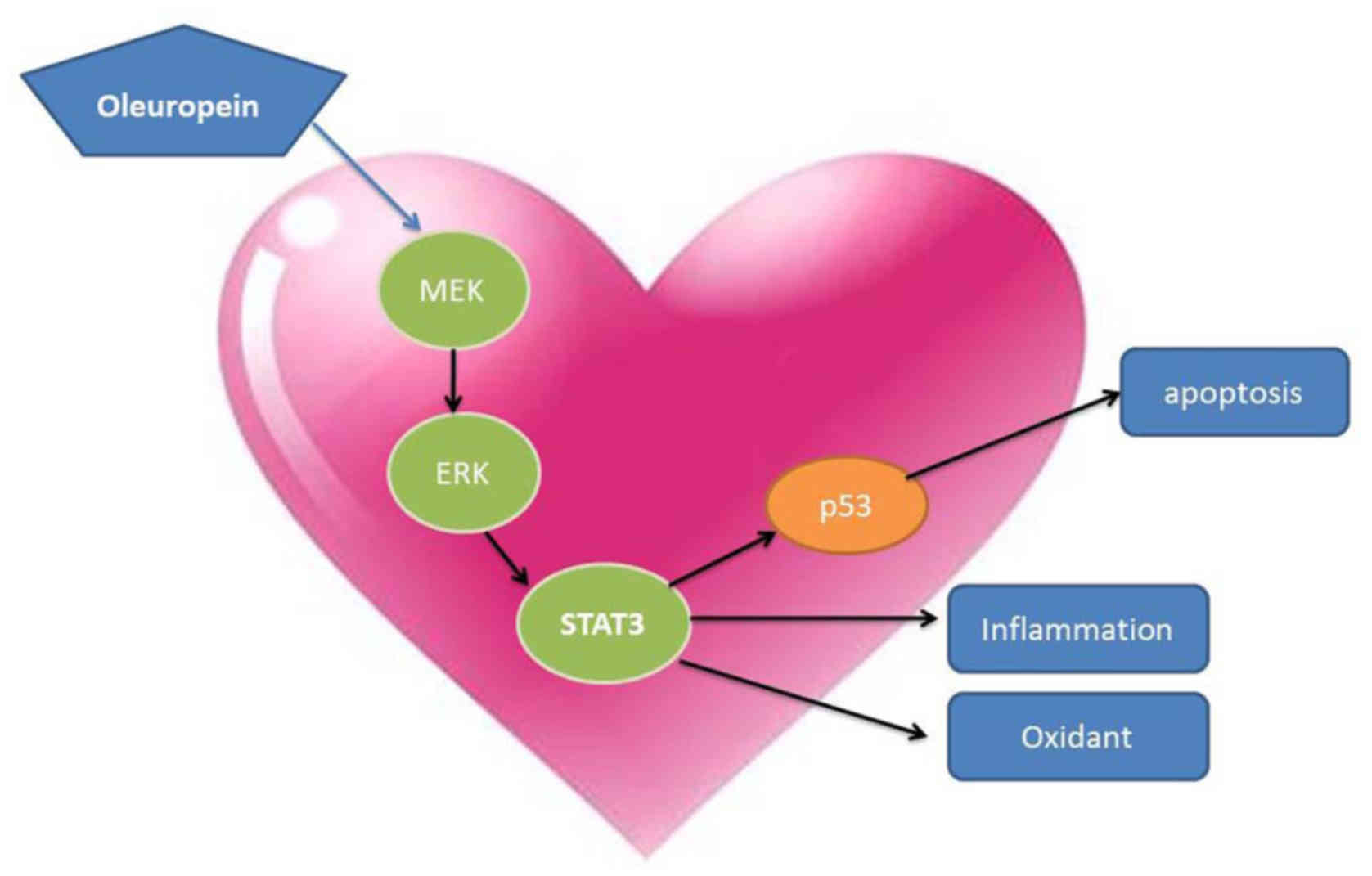|
1
|
Nicholls SJ, Cavender MA, Kastelein JJ,
Schwartz G, Waters DD, Rosenson RS, Bash D and Hislop C: Inhibition
of secretory phospholipase A(2) in patients with acute coronary
syndromes: Rationale and design of the vascular inflammation
suppression to treat acute coronary syndrome for 16 weeks
(VISTA-16) trial. Cardiovasc Drugs Ther. 26:71–75. 2012. View Article : Google Scholar
|
|
2
|
Holme I, Szarek M, Cater NB, Faergeman O,
Kastelein JJ, Olsson AG, Tikkanen MJ, Larsen ML, Lindahl C and
Pedersen TR: Incremental Decrease in End Points Through Aggressive
Lipid Lowering Study Group: Adherence-adjusted efficacy with
intensive versus standard statin therapy in patients with acute
myocardial infarction in the IDEAL study. Eur J Cardiovasc Prev
Rehabil. 16:315–320. 2009. View Article : Google Scholar : PubMed/NCBI
|
|
3
|
Vemulapalli S, Zhou Y, Gutberlet M, Kumar
AS, Mills JS, Blaxill J, Smalling R, Ohman EM and Patel MR:
Importance of total ischemic time and preprocedural infarct-related
artery blood flow in predicting infarct size in patients with
anterior wall myocardial infarction (from the CRISP-AMI Trial). Am
J Cardiol. 112:911–917. 2013. View Article : Google Scholar : PubMed/NCBI
|
|
4
|
Winter JL, Lindefjeld DS, Veas N, Guarda
E, Valdebenito M, Méndez M, Pérez O, Zuanic K, Mestas M and
Martínez A: Angiographic and electrocardiographic parameters of
myocardial reperfusion in angioplasty of patients with ST elevation
acute myocardial infarction loaded with ticagrelor or clopidogrel
(MICAMI-TICLO trial). Cardiovasc Revasc Med. 15:284–288. 2014.
View Article : Google Scholar : PubMed/NCBI
|
|
5
|
Wei C, Wang Y, Li M, Li H, Lu X, Shao H
and Xu C: Spermine inhibits endoplasmic reticulum stress-induced
apoptosis: A new strategy to prevent cardiomyocyte apoptosis. Cell
Physiol Biochem. 38:531–544. 2016. View Article : Google Scholar : PubMed/NCBI
|
|
6
|
Zhang H, Wang Z, Feng SJ, Xu L, Shi HX,
Chen LL, Yuan GD, Yan W, Zhuang W, Zhang YQ, et al: PEDF improves
cardiac function in rats with acute myocardial infarction via
inhibiting vascular permeability and cardiomyocyte apoptosis. Int J
Mol Sci. 16:5618–5634. 2015. View Article : Google Scholar : PubMed/NCBI
|
|
7
|
Ale A, Siebenhaar F, Kosanke K, Aichler M,
Radrich K, Heydrich S, Schiemann M, Bielicki I, Noel PB, Braren R,
et al: Cardioprotective C-kit+ bone marrow cells
attenuate apoptosis after acute myocardial infarction in mice -
in-vivo assessment with fluorescence molecular imaging.
Theranostics. 3:903–913. 2013. View Article : Google Scholar :
|
|
8
|
Li L, Guo Y, Zhai H, Yin Y, Zhang J, Chen
H, Wang L, Li N, Liu R and Xia Y: Aging increases the susceptivity
of MSCs to reactive oxygen species and impairs their therapeutic
potency for myocardial infarction. PLoS One. 9:e1118502014.
View Article : Google Scholar : PubMed/NCBI
|
|
9
|
Becatti M, Fiorillo C, Gori AM, Marcucci
R, Paniccia R, Giusti B, Violi F, Pignatelli P, Gensini GF and
Abbate R: Platelet and leukocyte ROS production and
lipoperoxidation are associated with high platelet reactivity in
Non-ST elevation myocardial infarction (NSTEMI) patients on dual
antiplatelet treatment. Atherosclerosis. 231:392–400. 2013.
View Article : Google Scholar : PubMed/NCBI
|
|
10
|
Correa F, Martínez-Abundis E,
Hernández-Reséndiz S, García N, Buelna-Chontal M, Arreguín F and
Zazueta C: Pharmacological strategies to contend against myocardial
reperfusion damage: Diverse chemicals for multiple targets. Curr
Med Chem. 17:2261–2273. 2010. View Article : Google Scholar : PubMed/NCBI
|
|
11
|
Sun SJ, Wu XP, Song HL and Li GQ: Baicalin
ameliorates isoproterenol-induced acute myocardial infarction
through iNOS, inflammation, oxidative stress and P38MAPK pathway in
rat. Int J Clin Exp Med. 8:22063–22072. 2015.
|
|
12
|
Protti A, Dong X, Andia ME, Yu B, Dokukina
K, Chaubey S, Phinikaridou A, Vizcay-Barrena G, Taupitz M, Botnar
RM, et al: Assessment of inflammation with a very small iron-oxide
particle in a murine model of reperfused myocardial infarction. J
Magn Reson Imaging. 39:598–608. 2014. View Article : Google Scholar
|
|
13
|
Impellizzeri D, Esposito E, Mazzon E,
Paterniti I, Di Paola R, Bramanti P, Morittu VM, Procopio A, Perri
E, Britti D, et al: The effects of a polyphenol present in olive
oil, oleuropein aglycone, in an experimental model of spinal cord
injury in mice. Biochem Pharmacol. 83:1413–1426. 2012. View Article : Google Scholar : PubMed/NCBI
|
|
14
|
Lapi D, Di Maro M, Mastantuono T,
Battiloro L, Sabatino L, Muscariello E and Colantuoni A: Effects of
oleuropein and pinoresinol on microvascular damage induced by
hypoperfusion and reperfusion in rat pial circulation.
Microcirculation. 22:79–90. 2015. View Article : Google Scholar
|
|
15
|
Nekooeian AA, Khalili A and Khosravi MB:
Oleuropein offers cardioprotection in rats with simultaneous type 2
diabetes and renal hypertension. Indian J Pharmacol. 46:398–403.
2014. View Article : Google Scholar : PubMed/NCBI
|
|
16
|
Giner E, Recio MC, Ríos JL, Cerdá-Nicolás
JM and Giner RM: Chemopreventive effect of oleuropein in
colitis-associated colorectal cancer in c57bl/6 mice. Mol Nutr Food
Res. 60:242–255. 2016. View Article : Google Scholar
|
|
17
|
Elbarouni B, Cantor WJ, Ducas J,
Borgundvaag B, Džavík V, Heffernan M, Buller CE, Langer A, Goodman
SG and Yan AT; TRANSFER-AMI Trial Investigators: Efficacy of an
early invasive strategy after fibrinolysis in ST-elevation
myocardial infarction relative to the extent of coronary artery
disease. Can J Cardiol. 30:1555–1561. 2014. View Article : Google Scholar : PubMed/NCBI
|
|
18
|
Boghdady A and Elbadry MI: Comparison of
successful myocardial reperfusion and adverse events in patients
with ST-elevation myocardial infarction who underwent rescue
percutaneous coronary intervention after failed fibrinolytic
therapy with versus without manual coronary thrombus aspiration. Am
J Cardiol. 116:1185–1192. 2015. View Article : Google Scholar : PubMed/NCBI
|
|
19
|
She T, Wang X, Gan Y, Kuang D, Yue J, Ni
J, Zhao X and Wang G: Hyperglycemia suppresses cardiac stem cell
homing to peri-infarcted myocardium via regulation of ERK1/2 and
p38 MAPK activities. Int J Mol Med. 30:1313–1320. 2012. View Article : Google Scholar : PubMed/NCBI
|
|
20
|
Przybyt E, Krenning G, Brinker MG and
Harmsen MC: Adipose stromal cells primed with hypoxia and
inflammation enhance cardiomyocyte proliferation rate in vitro
through STAT3 and Erk1/2. J Transl Med. 11:392013. View Article : Google Scholar : PubMed/NCBI
|
|
21
|
Potočnjak I, Škoda M, Pernjak-Pugel E,
Peršić MP and Domitrović R: Oral administration of oleuropein
attenuates cisplatin-induced acute renal injury in mice through
inhibition of ERK signaling. Mol Nutr Food Res. 60:530–541. 2016.
View Article : Google Scholar
|
|
22
|
Yang X, Qin Y, Shao S, Yu Y, Zhang C, Dong
H, Lv G and Dong S: MicroRNA-214 Inhibits Left Ventricular
Remodeling in an Acute Myocardial Infarction Rat Model by
Suppressing Cellular Apoptosis via the Phosphatase and Tensin
Homolog (PTEN). Int Heart J. 57:247–250. 2016. View Article : Google Scholar : PubMed/NCBI
|
|
23
|
Zhang RL, Guo Z, Wang LL and Wu J:
Degeneration of capsaicin sensitive sensory nerves enhances
myocardial injury in acute myocardial infarction in rats. Int J
Cardiol. 160:41–47. 2012. View Article : Google Scholar
|
|
24
|
Sygitowicz G, Maciejak A,
Piniewska-Juraszek J, Pawlak M, Góra M, Burzyńska B, Dłużniewski M,
Opolski G and Sitkiewicz D: Interindividual variability of
atorvastatin treatment influence on the MPO gene expression in
patients after acute myocardial infarction. Acta Biochim Pol.
63:10142016. View Article : Google Scholar
|
|
25
|
Mladenka P, Filipský T, Ríha M, Vávrová J,
Holecková M, Palicka V and Hrdina R: The relationship of oxidative
stress markers and parameters of myocardial function in a rat model
of cardiotoxicity. Free Radic Biol Med. 75(Suppl 1): S422014.
View Article : Google Scholar
|
|
26
|
Carvalheiro T, Velada I, Valado A, Mendes
F, Martinho A, António N, Gonçalves L, Providência L, Pais ML and
Paiva A: Phenotypic and functional alterations on inflammatory
peripheral blood cells after acute myocardial infarction. J
Cardiovasc Transl Res. 5:309–320. 2012. View Article : Google Scholar : PubMed/NCBI
|
|
27
|
Shrivastava AK, Singh HV, Raizada A and
Singh SK: Serial measurement of lipid profile and inflammatory
markers in patients with acute myocardial infarction. EXCLI J.
14:517–526. 2015.PubMed/NCBI
|
|
28
|
Prato FS, Butler J, Sykes J, Keenliside L,
Blackwood KJ, Thompson RT, White JA, Mikami Y, Thiessen JD and
Wisenberg G: Can the inflammatory response be evaluated using
18F-FDG within zones of microvascular obstruction after myocardial
infarction? J Nucl Med. 56:299–304. 2015. View Article : Google Scholar : PubMed/NCBI
|
|
29
|
Xia KP, Ca HM and Shao CZ: Protective
effect of notoginsenoside R1 in a rat model of myocardial ischemia
reperfusion injury by regulation of vitamin D3 upregulated protein
1/NF-κB pathway. Pharmazie. 70:740–744. 2015.
|
|
30
|
Xu H, Wang D, Peng C, Huang X, Ou M, Wang
N, Wang P, Zhou L and Ye X: Rabbit sera containing compound danshen
dripping pill attenuate leukocytes adhesion to TNF-alpha-activated
human umbilical vein endothelial cells by suppressing endothelial
ICAM-1 and VCAM-1 expression through NF-kappaB signaling pathway. J
Cardiovasc Pharmacol. 63:323–332. 2014. View Article : Google Scholar : PubMed/NCBI
|
|
31
|
Arslan S, Korkmaz Ö, Özbilüm N and Berkan
Ö: Association between NF-κBI and NF-κBIA polymorphisms and
coronary artery disease. Biomed Rep. 3:736–740. 2015. View Article : Google Scholar : PubMed/NCBI
|
|
32
|
Campolo M, Di Paola R, Impellizzeri D,
Crupi R, Morittu VM, Procopio A, Perri E, Britti D, Peli A,
Esposito E, et al: Effects of a polyphenol present in olive oil,
oleuropein aglycone, in a murine model of intestinal
ischemia/reperfusion injury. J Leukoc Biol. 93:277–287. 2013.
View Article : Google Scholar
|
|
33
|
Grossi V, Lucarelli G, Forte G, Peserico
A, Matrone A, Germani A, Rutigliano M, Stella A, Bagnulo R, Loconte
D, et al: Loss of STK11 expression is an early event in prostate
carcinogenesis and predicts therapeutic response to targeted
therapy against MAPK/p38. Autophagy. 11:2102–2113. 2015. View Article : Google Scholar : PubMed/NCBI
|
|
34
|
Armstrong SC: Protein kinase activation
and myocardial ischemia/reperfusion injury. Cardiovasc Res.
61:427–436. 2004. View Article : Google Scholar : PubMed/NCBI
|
|
35
|
Ruisong M, Xiaorong H, Gangying H,
Chunfeng Y, Changjiang Z, Xuefei L, Yuanhong L and Hong J: The
protective role of interleukin-33 in myocardial ischemia and
reperfusion is associated with decreased HMGB1 expression and
upregulation of the p38 MAPK signaling pathway. PLoS One.
10:e01430642015. View Article : Google Scholar
|















